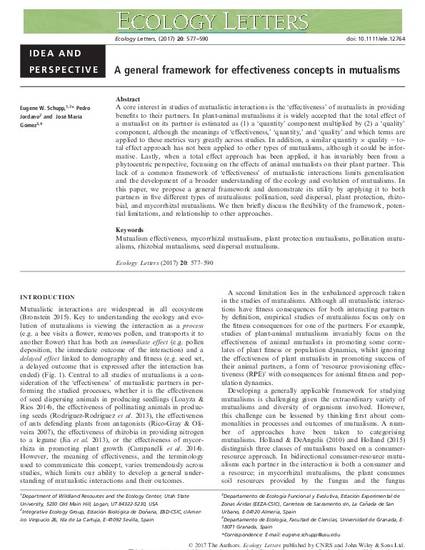
Article
General framework for effectiveness concepts in mutualisms
Ecology Letters
(2017)
Abstract
A core interest in studies of mutualistic interactions is the ‘effectiveness’ of mutualists in providing benefits to their partners. In plant-animal mutualisms it is widely accepted that the total effect of a mutualist on its partner is estimated as (1) a ‘quantity’ component multiplied by (2) a ‘quality’ component, although the meanings of ‘effectiveness,’ ‘quantity,’ and ‘quality’ and which terms are applied to these metrics vary greatly across studies. In addition, a similar quantity × quality = total effect approach has not been applied to other types of mutualisms, although it could be informative. Lastly, when a total effect approach has been applied, it has invariably been from a phytocentric perspective, focussing on the effects of animal mutualists on their plant partner.
Disciplines
Publication Date
2017
DOI
https://doi.org/10.1111/ele.12764
Citation Information
Eugene W. Schupp. "General framework for effectiveness concepts in mutualisms" Ecology Letters Vol. 20 Iss. 5 (2017) p. 577 - 590 Available at: http://works.bepress.com/eugene_schupp/147/
